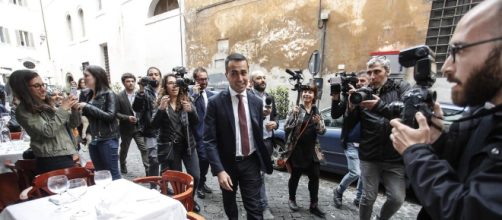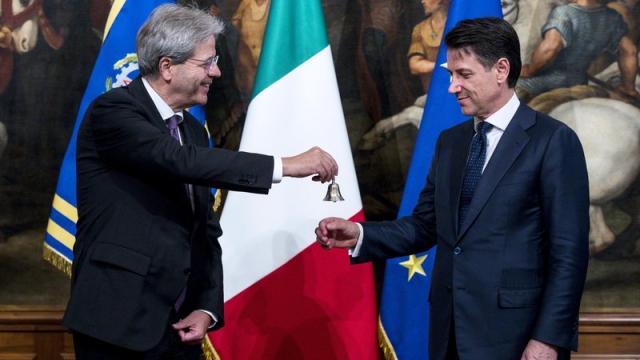Elsewhere in Europe, tumultuous times are ahead for the EU after the two Italian populist parties, the far-right League party and the anti-establishment Five Star Movement, managed to gain approval from the president Sergio Mattarella to form a government after 88 days of multiple hurdles and negotiations. Both have a history of antagonism towards the EU.
Previously, the president had rejected their first proposal to form a government after he was vocal about his concerns about a proposed finance minister who had helped write a guide for withdrawing Italy from the euro.
The wary world looks on
Giuseppe Conte took an oath of loyalty to the Italian constitution in Italy's presidential palace in Rome, ending three months of political turmoil. From the off, the Italian economy grew and stabilised after the political situation was stabilised. But this will be of great concern to the likes of Emmanuel Macron and Angela Merkel, who are pushing for greater EU political and economic integration. The leaders of the Five Star Movement and the League, Luigi di Maio and Matteo Salvini respectively, managed to find a compromise in the figure of Conte after signing a 57-page programme that included a blend of both parties' campaign promises.
The greater concern being that the nation which gave birth to the traditional Fascist movement has again opted for a party that holds similar views, especially when it comes to blatant xenophobic and anti-immigration policies.
League leader Matteo Salvini has been sworn in as interior minister and Five Star’s Luigi Di Maio is labor and economic development minister.
Hundreds gathered in Rome and Milan to protest the formation of the most right-wing government since Mussolini’s National Fascist Party gained power in 1922. Whatever happens next the world and in particular the EU will be watching very carefully at their first moves but it is likely, much like Mussolini did, they will make more moderate concessions to maintain power.
The dilemma for Brussels and Italy
The dilemma for Brussels is to work out how to deal with the unruly nature of the new Italian government led by vocally anti-EU alongside Brexit negotiations, an increase in tensions between Moscow and Russia, the trade war instigated by the US administration and uncooperative states such as Viktor Orban’s Hungary.
As Owen Jones wrote about Italy for The Guardian "It must confront its core national dilemma: whether to remain shackled by the euro or try to reclaim economic, political, and institutional sovereignty."
Whether or not you believe the Euro and the EU to be underlying issues for Italy, there is much to be taken by what Owen Jones says here and throughout the article itself. There are a number of confrontations Italy must have with itself and the EU must do the same also, it is imperative that both Italy and the EU act with their economic futures in mind without pushing needless national rhetoric.



